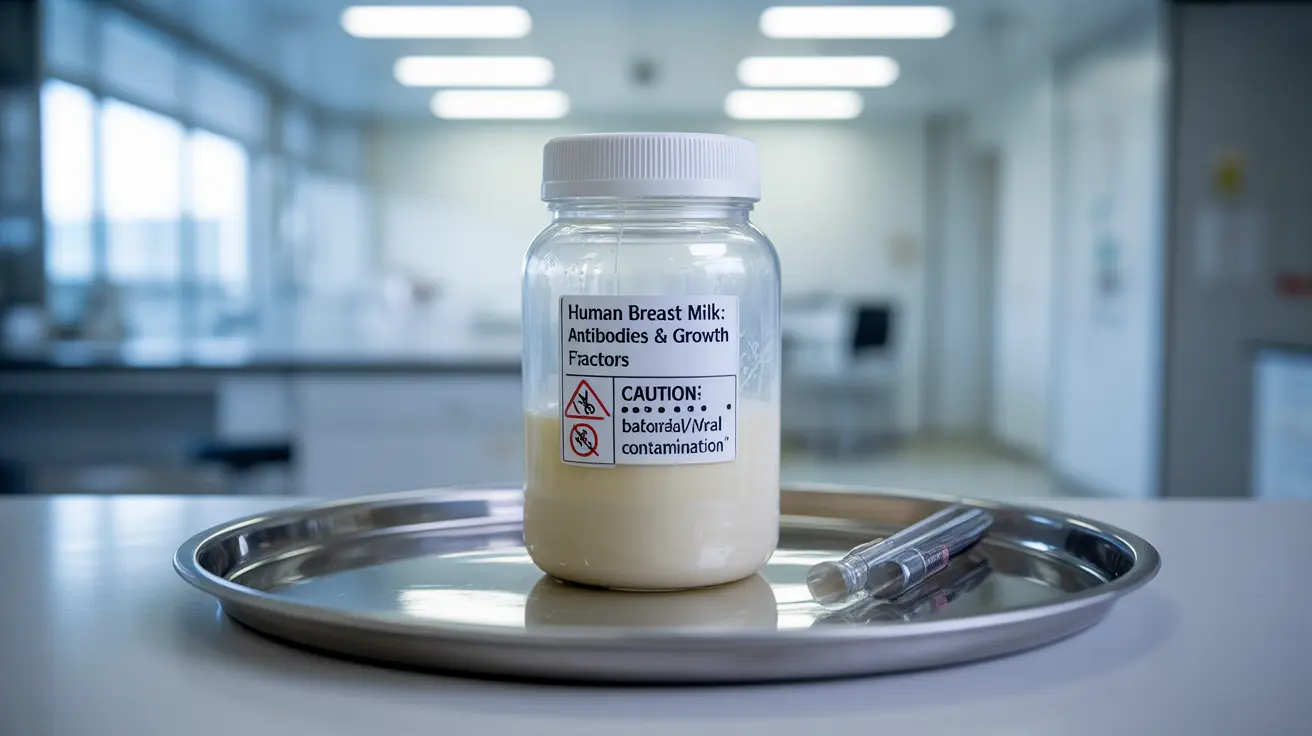Understanding Adult Breast Milk Consumption
Adult consumption of breast milk is a complex topic that requires careful consideration of both scientific evidence and safety concerns. While breast milk contains beneficial compounds, its effects on adults differ significantly from its primary purpose of nourishing infants.
Potential Benefits of Breast Milk for Adults
While breast milk does contain beneficial components, it's important to understand that these benefits are primarily designed for infant development:
- Antibodies and immune factors
- Essential nutrients
- Growth factors
- Digestive enzymes
However, research on adult consumption is limited, and many claimed benefits lack scientific validation. The adult digestive system processes these components differently than an infant's system.
Health and Safety Risks
Infection Risks
Consuming another person's breast milk carries several potential health risks:
- Bacterial contamination
- Viral transmission (including HIV, hepatitis)
- Food-borne illness
- Exposure to medications or substances in the milk
Storage and Handling Concerns
Improper storage and handling can lead to additional risks:
- Bacterial growth in improperly stored milk
- Cross-contamination
- Degradation of nutritional content
- Chemical changes affecting safety
Medical Applications for Adults
There are limited documented medical uses for breast milk in adults:
- Some cancer research applications
- Experimental treatments for specific conditions
- Research in immunology studies
However, these applications are conducted in controlled medical settings and aren't recommended for casual consumption.
Safe Handling Guidelines
If adults choose to consume breast milk, following strict safety protocols is essential:
- Obtain milk only from screened, known sources
- Store properly in sterile containers
- Maintain appropriate temperature control
- Use within recommended timeframes
- Follow proper thawing procedures
Frequently Asked Questions
Is it safe for adult men, like my husband, to drink breast milk?
While breast milk isn't inherently toxic to adults, it carries potential risks including bacterial contamination and viral transmission. There's no medical necessity for adult men to consume breast milk, and safety cannot be guaranteed without proper screening and handling.
What health benefits, if any, does breast milk offer to adults?
Though breast milk contains beneficial compounds like antibodies and nutrients, these are specifically designed for infant development. Scientific evidence supporting health benefits for adults is limited and inconclusive.
Can drinking breast milk pose any risks or infections to husbands or other adults?
Yes, consuming breast milk can pose several risks including exposure to infectious diseases, bacterial contamination, and potentially harmful substances that may be present in the milk. Unpasteurized breast milk can also harbor dangerous bacteria.
Are there any medically recommended uses of breast milk for adults besides infant feeding?
Currently, there are very few medically recommended uses of breast milk for adults. Any medical applications are typically conducted in controlled research settings and aren't recommended for general consumption.
How should breast milk be stored and obtained safely if an adult chooses to consume it?
If choosing to consume breast milk, it should only be obtained from screened donors, stored in sterile containers at appropriate temperatures (4°C or below for fresh milk), and used within recommended timeframes. Proper handling and storage protocols must be followed to minimize risk.
It's important to consult with healthcare providers before considering adult breast milk consumption, as they can provide personalized medical advice and discuss potential risks and alternatives.




